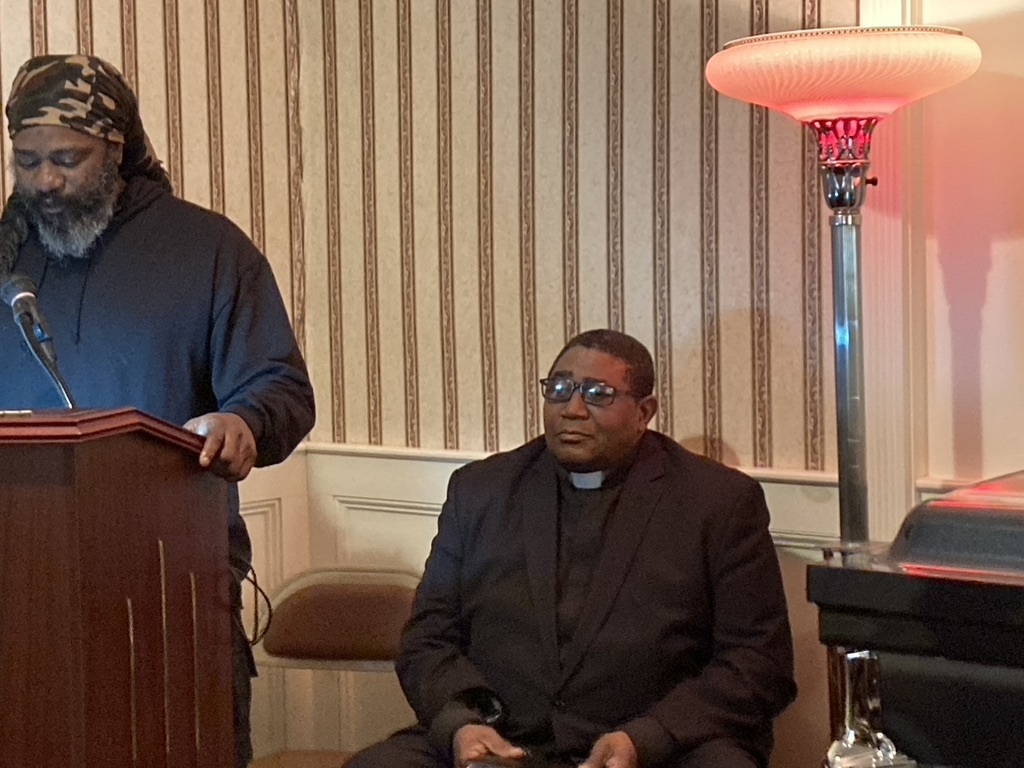
by BNimri Aziz April 26, 2025
Moses Baptiste’s family laid their brother to rest on April 17th. But the Roscoe resident’s death leaves many unanswered questions
Rockland town residents had waited throughout the winter for any news of Moses Baptiste’s whereabouts. For six months, nothing had been heard of the Roscoe man. With the discovery of his body in mid-March, as shocking as it was, his family can lay him to rest, and many Roscoe inhabitants can pay respects to a person they feel they knew and trusted.
He was a local man, 43, resident in the village for fifteen years. Liked by anyone who talked with him. People I spoke to say they never heard that he’d ever felt threatened or that he’d been involved in any altercation.
Although few Roscoe residents could say they knew Moses well, almost everyone living here recognized him. He was a feature of the village, regularly seen pushing his cart loaded with the bottles and cans he faithfully collected to carry to the next town to redeem for cash, a modest supplement to his state allowance. You might say he was our local conservationist, recycling throwaways and thus helping to keep our streets free of debris.

A taciturn fellow, he lived alone, though he was not a recluse. He was self-sufficient, drove his own car, and used a computer at his Roscoe apartment. After living in Roscoe for 15 years, he seemed settled. Maybe for some, he was a reassuring presence in a quiet place where few people stroll its streets. Moses was familiar enough that his absence was noted and reported.
Moses was African American. His family was contacted. Comments about his disappearance were shared among locals. In the weeks following the man’s vanishing, police made inquiries throughout the neighborhood. For two days, maybe more, helicopters were heard flying up and down the Beaverkill River after authorities said they suspected Moses may have drowned.
Those searches yielded nothing. Worrying remarks circulated that Moses was the victim of an assault. Then silence. Is an investigation ongoing? Is the FBI involved? No one could say.
The man’s disappearance seemed to have been forgotten. Winter set in, a time when few people are in the street. We became occupied protecting ourselves from the harsh weather, dealing with seasonal coughs and rheumatism, and with illnesses in the family. Months passed.

At the start of the year, remembering Moses, I casually asked if those seated with me at a local venue had news of his disappearance. “No news.” Then I’m told, “Oh, we know who may have got rid of him. He may never be found.” He’d been lost for so long now; some assumed those suspects buried him somewhere in the woods where his body could never be unearthed. “They could ditch him anywhere. How could anyone search through all the Catskill forests?”
There was too much gossip. No facts. No official statements for a long time. “Surely the police would have pursued those same rumors and questioned suspects,” I replied. Too many shrugs. Could the man’s race be the reason for the apparent disinterest? Or his illness? Would a missing gay person be similarly dismissed? Or one of thousands of Hispanic workers living among us? Or Muslim residents of Sullivan County? Across Sullivan and Delaware, there are many thousands, mostly elderly people, who live alone. Any who went missing had to be investigated.
How this man’s body was recovered so near the town was subject to rumors:— “it was not totally buried, not dug up by dogs or coyotes”. Moses’ family was contacted and they came up here to identify him. Given how well know he was locally, they arranged for his funeral in Roscoe (April 17th). Yet rumors persist, and the family still has questions about Moses’ death. If it was really not a suicide, the next question is: Is Baptiste’s death now being actively investigated as a homicide? If so, what does that mean for other residents?

